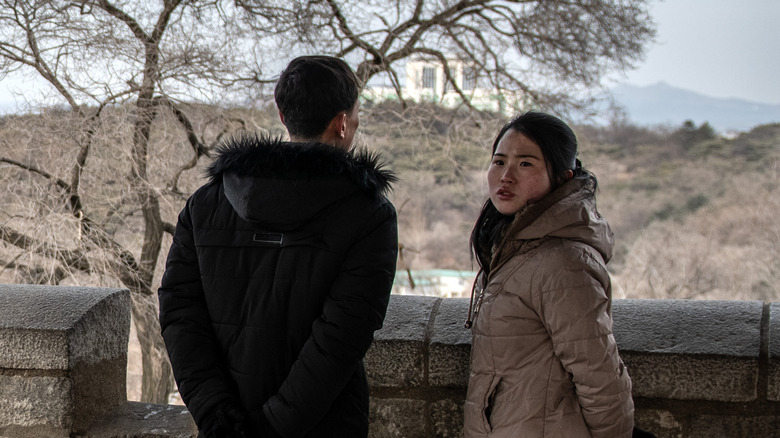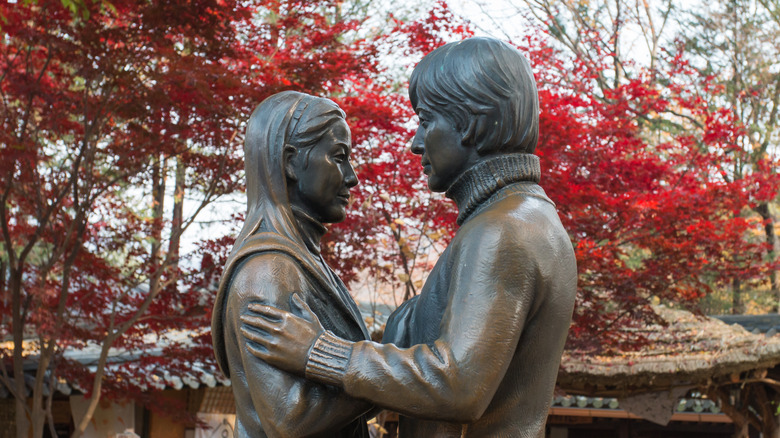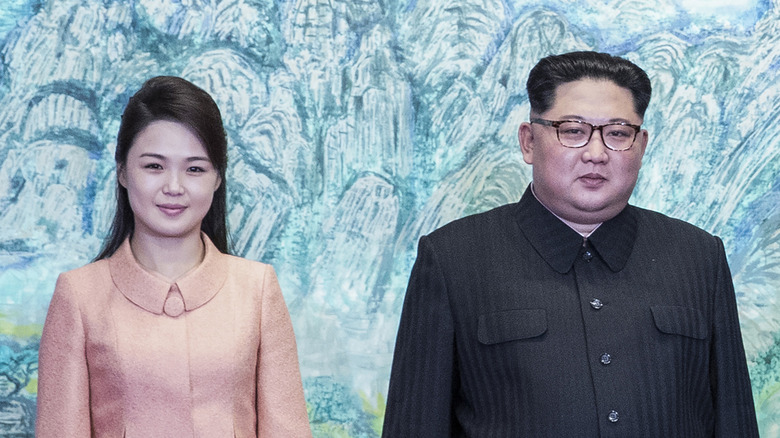North Korea's Extreme Dating Rules Explained
The government of North Korea has a reputation of being highly secretive and oppressive to its nearly 26 million people. It controls information coming in and out of the country and prohibits the many freedoms enjoyed in democratic nations, such as freedom of religion, freedom of expression, and the freedom to speak against the government itself, per Human Rights Watch.
But like the rest of the free world, citizens of North Korea are still humans with natural yearnings for intimacy, love, and companionship. Unfortunately, dating and public displays of affection have long been frowned up or looked at as suspect, anti-socialist behaviors in the reclusive country.
In an NK News column in which people ask questions of North Korean defectors, In-hua Kim — who left the country in 2018 — talks about dating. She said that a lot of North Koreans meet through matchmakers, who are often their parents, and the idea of using websites or phones for dating doesn't make sense because most people can't afford one. Even if they could, things like sexting would not be allowed as words related to sex are illegal.
Attitudes toward dating in North Korea are changing due to outside influences
According to South Korea's KBS World, dating in North Korea is "strictly controlled" by the government due to a perception that the drama that sometimes comes from romantic relationships can lead to a "breakdown of discipline." Indeed, there was a time when dating was banned for people in the military or in school. Dating was also looked at as a "product of capitalism" and a "subversive element" that could undermine the country's socialist foundation, per KBS. One exception was if students who wanted to go on a date agreed to keep the discussion centered on communist ideas. Or, if they agreed to exceed their normal amount of work, they could have a date without the risk of punishment.
But by some accounts, attitudes are changing due to exposure to movies, TV shows, and music smuggled in via the black market. Many North Koreans are seeing Chinese and South Korean dramas, in which actors show affection, display emotions, and celebrate anniversaries. According to a paper published by the Korea Institute for National Unification, the outside influence of the black market media is pushing younger generations of North Koreans to view romantic love as something important to a marriage, and no longer view affection as a shameful thing.
According to the KINU paper, "The older generation's dating consisted of evading other people's eyes, secretively meeting in parks or under street lamps. However, the younger generation's dating has become much more open and diverse."
Supreme Leader Kim Jong Un has publicly shown affection to his wife
Per KINU, today's younger North Koreans boldly date in public places and are sometimes even seen holding hands or linking arms — but only in the cities. The paper reported that in rural areas, dating has not changed much. Women who are known to date often are considered flawed after a breakup, and the more men she dates, the dirtier she is considered. Conversely, men with many partners are simply labeled "players," and dating various women is considered part of their nature. Interestingly, that line of thinking permeates both liberal and conservative societies.
Dating often leads to sex, but in North Korea, no one is formally given sex education, per KINU. Instead, they must rely on information about sex and advice about birth control from others of their gender, whether they be a friend, family member, or older person who has dating experience.
Another thing that may be changing attitudes about openly dating is the behavior of North Korean leader Kim Jong Un, who brought his wife to an official event in 2012. This was a big deal because it was the first time a wife was ever seen at an official event in the so-called hermit nation, per KBS. He even strolled arm in arm with her after, which was unprecedented. According to KBS, that one seemingly simple act had a huge impact on what young people in North Korea feel is acceptable dating culture.


